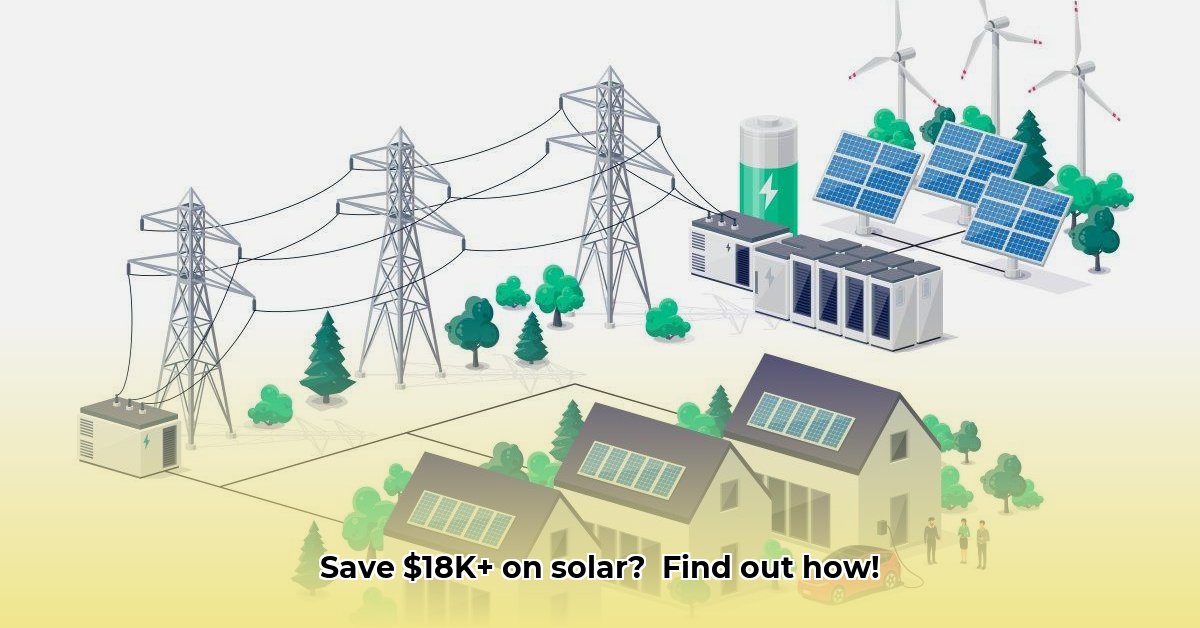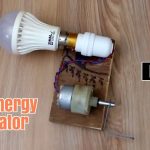Ready to switch to solar power in Norcross, Georgia? It’s a smart move for your wallet and the planet. Solar energy can significantly reduce your electricity bills and help create a more sustainable future. This comprehensive guide covers everything you need to know, from understanding your energy consumption to choosing the right solar installer and maintaining your system. Discover how to compare prices, find reliable installers, and see real-world examples of successful solar installations in the Norcross area. Let’s embark on your journey towards clean, affordable energy! Learn more about the financial benefits of solar.
Understanding the Future of Solar in Norcross: A 2026 Update
Contemplating solar power in Norcross, Georgia? As of 2026, the landscape has shifted. While the potential for long-term savings remains substantial, understanding the current incentives and regulations is crucial. This guide provides an updated overview of the Norcross solar market, focusing on maximizing efficiency and savings amidst changing federal policies. We’ll explore strategies for optimal solar panel efficiency in this new environment.
Assessing Your Energy Needs: Sizing Your Solar System Effectively
Begin by determining your energy usage. Review your monthly electricity bills to calculate your average kilowatt-hour (kWh) consumption. This figure is essential for determining the appropriate size of your solar system. Larger homes with higher energy demands will require more powerful systems than smaller, energy-efficient homes. Also, consider future energy needs, such as adding electric vehicles or other high-consumption appliances, to ensure your solar energy production meets your long-term requirements.
Selecting a Solar Installer: Key Considerations and Due Diligence
Choosing the right installer remains paramount. It’s about more than just installing panels; it’s about ensuring a reliable system and a positive customer experience. Beyond price, here’s what to consider:
1. Financial Stability and Insurance: Verify the installer’s financial health and insurance coverage. A financially unstable company may not be around to honor warranties or complete projects. Ensure they have adequate liability coverage and workers’ compensation insurance to protect you from potential liabilities during installation.
2. Reviews and Testimonials: Consult online reviews on platforms like Google, Yelp, and the Better Business Bureau to gauge customer satisfaction. Look for patterns in feedback, focusing on consistent themes rather than isolated incidents. Prioritize installers demonstrating a commitment to customer satisfaction.
3. Warranties and Service Agreements: A reputable installer will offer comprehensive warranties covering both workmanship and the solar panels themselves. Get the details in writing, including the duration of coverage and the process for making claims. Inquire about service agreements for ongoing maintenance and repairs, securing solar system protection.
4. Transparent Pricing: Obtain detailed, itemized quotes from multiple installers. Avoid companies that are vague about pricing or try to add hidden fees. A clear quote should include all costs upfront, such as installation, permits, inspections, and grid connection fees, ensuring solar system cost savings.
Solar Panel Options: Balancing Cost and Efficiency
The market offers various solar panel types, each with its own advantages. Monocrystalline panels are known for their higher efficiency but come at a premium cost. Polycrystalline panels are more affordable but slightly less efficient. Thin-film panels offer flexibility for unique installations. The best choice depends on your budget, energy goals, and available roof space. Discuss these options with your installer to find the right balance, optimizing your solar investment return depending on your priorities.
Navigating Solar Financing in 2026: Loans, Leases, and PPAs After the Tax Credit Cut
Financing options continue to evolve. While the full 30% federal tax credit for residential solar installations ended on December 31, 2025, other incentives may still be available. Here’s a look at common financing methods:
- Loans: Secure a loan to purchase the system, repaying it over time with interest. You own the system and may be eligible for remaining local or state incentives.
- Leases: Lease the system from a solar company, paying a monthly fee for the electricity it generates. You don’t own the system, but upfront costs are typically lower.
- Power Purchase Agreements (PPAs): Purchase electricity from the solar system at a fixed rate. The solar company owns and maintains the system.
Evaluate your financial situation and long-term goals when choosing a financing option. Carefully compare the advantages and disadvantages of each approach, considering potential state and local rebates. Consult with financial advisors to determine the best strategy for long-term solar energy savings.
Understanding Norcross Solar Regulations and Incentives
Familiarize yourself with local rules and regulations in Norcross. Check for any required permits and explore available local or state incentives to reduce system costs. Government websites and the Georgia Public Service Commission are valuable resources for identifying applicable programs. Compliance with regulations ensures a smooth solar panel installation.
Maintaining Solar Panel Performance: Best Practices for Longevity
Proper maintenance ensures optimal system performance over time. This includes regular cleaning to remove dirt and debris, as well as periodic inspections to identify potential issues. A well-maintained system maximizes your return on investment. Regular maintenance is crucial for optimal solar performance.
Estimating Your Savings: Key Factors and Long-Term Value
While savings depend on several variables, understanding these factors is essential:
| Factor | Impact on Savings | Ways to Optimize |
|---|---|---|
| System Size | Larger systems = higher upfront cost, greater savings | Size system to match current/projected needs |
| Electricity Rates | Higher rates = faster return on investment (ROI) | Monitor rate changes and potential increases |
| Panel Efficiency | Higher efficiency = more energy production | Invest in higher-efficiency panels, even if pricier |
| Installer Reliability | Poor installation = potential issues | Thoroughly vet installer; check reputation |
| Maintenance Costs | Proper maintenance = avoided costly repairs | Schedule regular cleaning and inspections |
| Local Incentives | Can significantly reduce upfront costs | Research/apply for available programs |
Remember, solar power is a long-term investment. While the federal tax credit has ended, the potential for long-term savings and a positive environmental impact remains significant.
Taking the Next Step: Research, Quotes, and Informed Decisions
Transitioning to solar requires careful research. Obtain quotes from multiple reputable installers in Norcross, comparing their offerings, warranties, and customer reviews. Don’t hesitate to ask questions; a qualified installer will provide guidance. Informed decisions lead to smart choices, enhancing renewable energy adoption.
Choosing the Right Solar Installer in Norcross, GA: What to Look For
Key Takeaways:
- The Norcross solar market offers a range of installers, requiring careful evaluation.
- Installer reputation, experience, equipment quality, and responsiveness are crucial.
- Long-term cost savings and potential ROI remain attractive incentives.
- Local installers often provide competitive pricing and stronger community ties.
Understanding Your Energy Needs (Revisited)
Before comparing installers, revisit your energy consumption. Accurately assessing your needs maximizes solar benefits.
Evaluating Potential Installers
Choosing the right installer is key. Here’s an updated guide for how to compare solar panel installers in Norcross, GA:
- Financial Stability and Insurance: Is the installer financially sound and adequately insured? Instability poses risks. Therefore, analyze solar company performance.
- Warranties and Service Agreements: Look for comprehensive warranties covering equipment and workmanship. Solid warranties are crucial, so focus on solar warranty options.
- Reviews and Testimonials: Online reviews provide valuable insights. Assess previous customer experiences on platforms such as Google and Yelp.
- Pricing Transparency: Demand a detailed, itemized quote to prevent solar cost overruns.
Understanding Solar Panel Technology (Revisited)
The panel type impacts performance. Understand the trade-offs between monocrystalline and polycrystalline options. Installers should explain their choices, accounting for varying solar technology specifications.
Solar Financing Options in 2026
The financing landscape has changed. Discuss available loans, leases, and PPAs with potential installers, and remember to research solar financing solutions.
Navigating Norcross, GA Regulations
Your installer should handle permitting. Adhering to solar regulatory compliance ensures a smooth process.
Maintaining Your Solar System (Revisited)
Understand maintenance needs and options. Keeping your system clean guarantees peak solar panel efficiency.
Financing Your Norcross Solar System in 2026: Adapting to Policy Changes
Key Takeaways:
- Solar power in Norcross offers long-term savings and environmental benefits.
- Financing options remain crucial for system affordability.
- Evaluate loan, lease, and PPA choices carefully.
- Reputable installers are essential for smooth installations and system performance.
- In the new financial landscape, it is important to understand Norcross Solar Financing Options: Loans, Leases, and PPAs.
Estimating and Understanding Your Energy Needs
Begin by understanding your energy consumption. Accurate analysis is critical for solar investment planning.
Choosing the Right Installer
Selecting an installer is vital, so verify their solar project security. Secure a reliable warranty, ensuring solar system guarantees. In addition, assess solar provider credibility and prevent unexpected solar installation expenses.
Solar Panel Technology
Your installer can help you optimize solar energy usage.
2026 Financing Options: A New Landscape
Here’s an updated look at the main Norcross Solar Financing Options: Loans, Leases, and PPAs:
Loans: You own the system and may receive remaining incentives.
* Pros: Ownership, potential home value increase.
* Cons: Higher upfront costs.
Leases: Pay a monthly fee for electricity.
* Pros: Low or no upfront costs.
* Cons: No ownership, potential for increased long-term costs.
Power Purchase Agreements (PPAs): Buy electricity at a fixed rate.
* Pros: Minimal upfront cost, predictable payments.
* Cons: No ownership, less control.
Cash Purchase: Pay the entire investment upfront.
* Pros: Maximize efficiency and savings with full ownership.
* Cons: Requires a high upfront investment.
Navigating Norcross Regulations and Incentives in 2026
Understand local regulations and available solar incentives in Norcross.
System Maintenance
Maintain long-term solar efficiency.
Optimizing Performance: Maintenance Plans for Norcross Solar Systems
Key Takeaways:
- Regular cleaning maximizes energy production.
- Professional inspections identify potential problems early.
- Preventative maintenance saves money.
- Understanding your system is crucial.
- Applying proven maintenance plans for Norcross solar systems protects your investment.
Understanding Your System
Familiarize yourself with your system’s components to aid solar management.
Regular Cleaning
Cleaning improves solar energy yield.
Monitoring Your System
Consistent monitoring enhances solar performance tracking.
When to Call a Professional
Seek professional assistance for solar malfunction mitigation.
Developing Your Personal Maintenance Plan
Enhance solar longevity and performance with a custom schedule.
Maximizing Your Investment
Maintain optimal solar ROI with preventative maintenance.
Resources for Norcross Homeowners
Solaredge’s Solar System Maintenance Guide
- How to Produce Electricity at Home for Energy Independence - January 29, 2026
- How To Create Electricity At Home For Energy Independence - January 28, 2026
- How to Make Electricity at Home Using Renewable Energy Sources - January 27, 2026
















